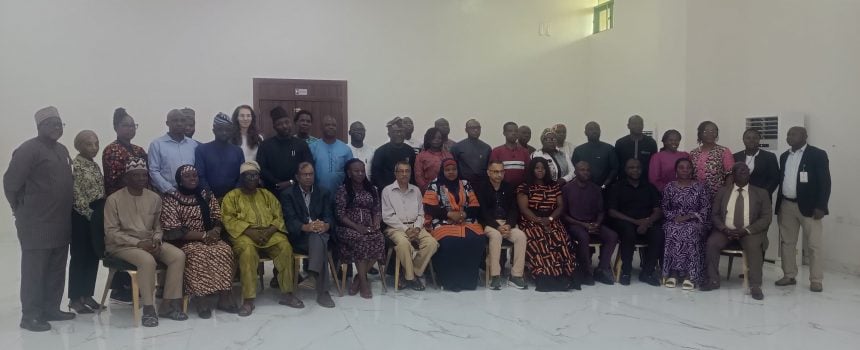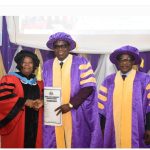In a demonstration of its commitment to the fight against climate change and the requirements of the Paris Agreement, the government of Nigeria, through the National Council on Climate Change Secretariat (NCCCS), with support from its development partner, the United Nations Development Programme (UNDP), has launched a series of multisectoral stakeholder engagements to review Nigeria’s Nationally Determined Contributions (NDCs).
The series of engagements have been held in Abuja and in Lagos to ensure widespread consultation and engagement with relevant stakeholders across the country.
Nigeria first submitted its NDCs in 2015 under the Paris Agreement, pledging to reduce greenhouse gas (GHG) emissions by 20 per cent unconditionally and 45 per cent conditionally by 2030.
In 2021, the country revised and submitted its NDCs (NDC 2.0) to the United Nations Framework Convention on Climate Change (UNFCCC). Under the Paris Agreement, each party must update and resubmit its NDCs every five years. In order to enhance the ambition over time, the Paris Agreement provides that successive NDCs will represent a progression compared to the previous NDC and reflect the country’s highest possible ambition. The latest edition of its NDCs has been tagged NDC 3.0.
The UNDP, through its Climate Promise 2 initiative, is collaborating with the NCCCS to support the Nigerian government in preparing NDC 3.0. This effort, backed by the governments of the United Kingdom and Germany, includes technical assistance, broad stakeholder engagement, capacity building, and investment planning.
UNDP Resident Representative, Elsie Attafuah, highlighted the significance of aligning NDC targets with national economic priorities, which fosters ownership and commitment to implementation. She emphasized the need to leverage NDCs to drive investment and private sector engagement by identifying potential areas such as renewable energy, energy efficiency, and sustainable infrastructure.
This approach can attract international climate finance, catalyse private sector investment, and facilitate government-private sector collaboration, ultimately supporting Nigeria’s transition to a low-carbon economy. By doing so, Nigeria can stimulate green economy growth, create jobs, and attract climate finance, thereby advancing its development goals.
Speaking at the Lagos event which began on Monday and ended on Friday, May 26 to 30, the Director-General of NCCCS, Dr Nkiruka Maduekwe, represented by Halima Bawa-Bwari, a director at the council, stated that the revision of the NDCs and the collation of data and technical analysis are critical pillars of the country’s national climate ambition and policy planning.
She said, “The NDCs represent our country’s commitment under the Paris Agreement to reduce greenhouse gas emissions and adapt to the impacts of climate change. The revision process is not merely an update, it is a chance to raise our ambition, align our national plans with the latest science, and present the progress we’ve made since our last submission.
Maduekwe added, “This series of consultation workshops is particularly significant because robust and credible data underpins effective climate action. As you are aware, data enables parties to access current statuses, enables the setting of ambitious, but realistic targets, while enabling monitoring of progress made in the effort to achieve climate action and aligning to the Paris Agreement. Accurate and timely data is therefore a key requirement that will enable government to make evidence-based decisions, track our progress, and ensure transparency and accountability in reporting.
“To achieve this, there is a dire need for engagement, collaboration, and partnership between governments, private sector actors, civil society, NGOs, people with disabilities, among others. This will facilitate the collation of a robust database that can transform our climate change commitments into tangible, progressive action.”
Concluding, she said, “As we move forward, let us seize this opportunity to align our NDC with the urgent need for climate action in all the sectors of the economy, as the ambition of this government is an economy-wide NDC which has a broadened scope that leaves no one behind. Together, we can pave the way for a future where NDCs are not only policy documents but solutions driving sustainability, resilience, and prosperity for all.”
Speaking during one of the workshop sessions, lead consultant, Rasack Nayamuth, said Nigeria’s NDC 3.0 would align with the Paris Agreement and accelerate progress toward achieving net-zero emissions by 2060. He told Nigerian Tribune that his mission involved “helping the country to set up systems, to collect data, to understand the process, and produce their own reports in the nearest possible future so that you no longer need consultants.”
ALSO READ TOP STORIES FROM NIGERIAN TRIBUNE
WATCH TOP VIDEOS FROM NIGERIAN TRIBUNE TV
- Let’s Talk About SELF-AWARENESS
- Is Your Confidence Mistaken for Pride? Let’s talk about it
- Is Etiquette About Perfection…Or Just Not Being Rude?
- Top Psychologist Reveal 3 Signs You’re Struggling With Imposter Syndrome
- Do You Pick Up Work-Related Calls at Midnight or Never? Let’s Talk About Boundaries







